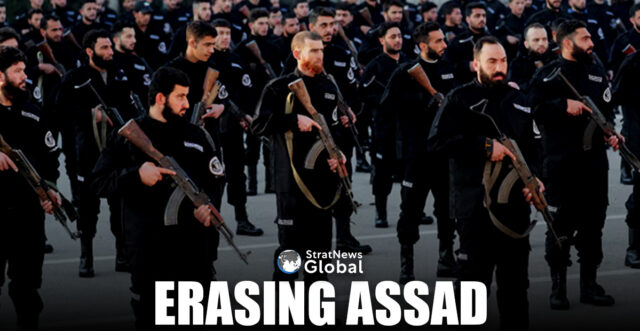Syria‘s new authorities are using Islamic teachings to train a fledgling Syrian police force and dismantle the legacy of the Assad regime.
Amid fears of Islamisation, officers say they aim is to instil a sense of morality in Syrian police as they race to fill a security vacuum after dismantling ousted president Bashar al-Assad‘s notoriously corrupt and brutal security forces.
Police brought into Damascus from their former rebel enclave in the northwestern region of Idlib are asking applicants about their beliefs and focusing on Islamic sharia law in the brief training they offer recruits, according to five senior officers and application forms seen by Reuters.
Religion In Policing
Ensuring stability and winning the trust of people across Syria will be crucial for the Sunni Muslim Islamists to cement their rule. But the move to put religion at the centre of Syrian police functioning risks seeding new rifts in a diverse country awash with guns after 13 years of civil war and alienating foreign governments they have been trying to woo, regional analysts warn.
“There are many Syrians who will find this concerning,” said Aron Lund, a fellow at Century International, a Middle East-focused think tank, when asked about Reuters’ findings. “Not just minorities – Christians, Alawites, Druze – but also quite a lot of Sunni Muslims in places like Damascus and Aleppo, where you have a fairly large secular, cosmopolitan population that’s not interested in religious law.”
The religious foundations of the police training are also making Western governments wonder how big a role Islam might play in Syria’s constitution, which the former rebel faction now in power plans to revise, said one diplomat, who was not authorized to speak publicly on the matter.
“It’s not a good sign, but it also depends on how strictly it will be implemented,” the diplomat told Reuters on the new Syrian police force.
Syria’s de facto leader, Ahmed al-Sharaa, has sought to reassure Western officials and Middle Eastern governments worried about their own Islamist movements that his faction has renounced its former ties to al Qaeda and will rule with moderation, including protecting minorities.
Police Disbanded
Assad’s myriad security forces were widely feared for tyrannical and predatory behaviour, ranging from arrests of dissidents who ended up tortured or killed to demanding bribes to resolve minor infractions.
The extent of public anger against them was evident in the days after Assad was toppled on Dec. 8. Most of the capital’s police stations were ransacked by looters, with equipment and records pillaged or destroyed.
Police said half of the roughly 20 stations have since reopened, but they are each staffed by around 10 officers, mostly brought in from Idlib, instead of their previous complement of 100-150 officers.
When the rebels seized power, they announced they were disbanding Assad’s Interior Ministry and security forces, including the police.
More than 200,000 people have registered to join a new police service they are establishing, said Hesham Hilal, who is leading courses for recruits at a police academy in Damascus.
Police who defected to the rebel side before Assad’s fall are welcome to apply for the new force, the senior officers told Reuters.
Seven officers who manage police stations or are involved in recruitment said they needed more members and welcomed applications from people of any faith.
But the focus on sharia has been a deterrent to some.
A 45-year-old Christian, who worked in Assad’s traffic police, said he wouldn’t apply for the new force even if he could.
Speaking on condition of anonymity for safety reasons, he said he was worried that even people in lowly roles like his would be seen as part of Assad’s regime, and that the focus on Islamic law meant there would be discrimination against those of other faiths.
(With inputs from Reuters)





